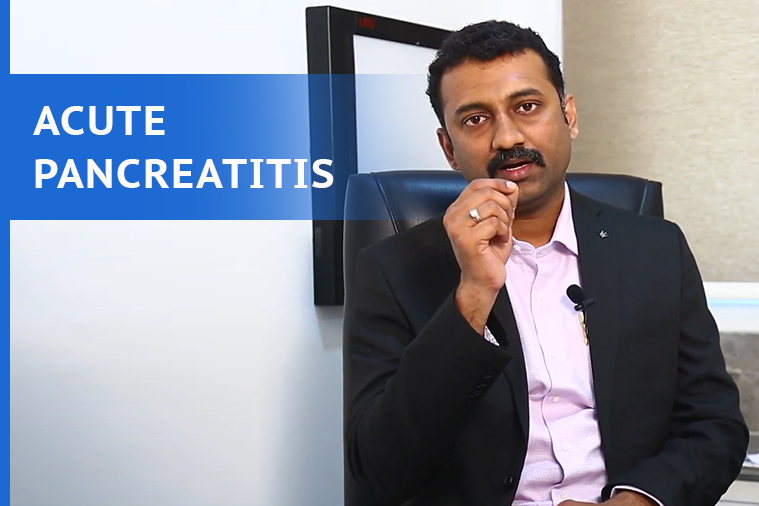Acute Pancreatitis
Acute Pancreatitis is a sudden inflammation of the pancreas. It helps in digestion of nutrients and also secretes insulin. The inflammation of the pancreas is a major life threatening problem which can have an impact over multiple organs like the lungs, kidneys.

What Causes Acute Pancreatitis
Gallstones are small calcium and cholesterol made substances forms in the gallbladder. When these stones slip out of the gallbladder into the bile duct(tube) they can travel down it and block the pancreas. This causes an attack of pancreatitis.
Apart from these two, there are various other factors which can cause acute pancreatitis, like
- Certain medications like steroids
- High triglyceride level in blood
- High calcium levels in blood (due to some underlying problem of the parathyroid gland)
- Autoimmune disorders
Symptoms of Acute Pancreatitis
Acute pancreatitis is a very painful condition. It typically starts as a sudden catastrophic pain in the upper abdomen. The pain travels to the back and shoulders. The patient has vomiting,fever and distension of the abdomen with gas. Severe attacks can be fatal within a few hours too. It can be mistaken for a heart attack many times.
What are the Complications of Acute Pancreatitis
Luckily most of the attacks of pancreatitis are mild. Meaning the attack passes off without any major damage to other organs. But around 15-20%of patients end up in acute severe pancreatitis. This is a rapidly progressing condition which quickly affects the kidneys, lungs and intestines. The patient may experience a fall in blood pressure and may need treatment in and ICU setting. The effect of a single attack can progress over days and can last for weeks. In severe attacks, he risk of death is very high.
Treatment for Acute Pancreatitis
The main treatment of acute pancreatitis is supportive. Meaning there is no medicine which can reverse the attack that has happened. The aim behind treating such patients is to support the organs which have suffered damage due to the pancreatitis and to take measures to prevent further attacks in future
During the treatment
- The patient is kept fasting initially to give rest to the intestines
- Antibiotics are given to prevent secondary infections.
- Good oxygen supply is provided to the patient.
- In cases where the pancreatitis causes rotting of the intestinal fat and parts of the pancreas itself the patient might need an operation to remove these infected material.
Measures to prevent future attacks are aimed at treating the cause of the first attack.
- If gallstones are found to be the cause of pancreatitis a laparoscopic cholecystectomy (gallbladder removal) needs to be done as early as possible after the patient recovers.
- Alcohol should be banned for life .
- If the cause is found to be high calcium or triglycerides then specific treatment for those are needed.



